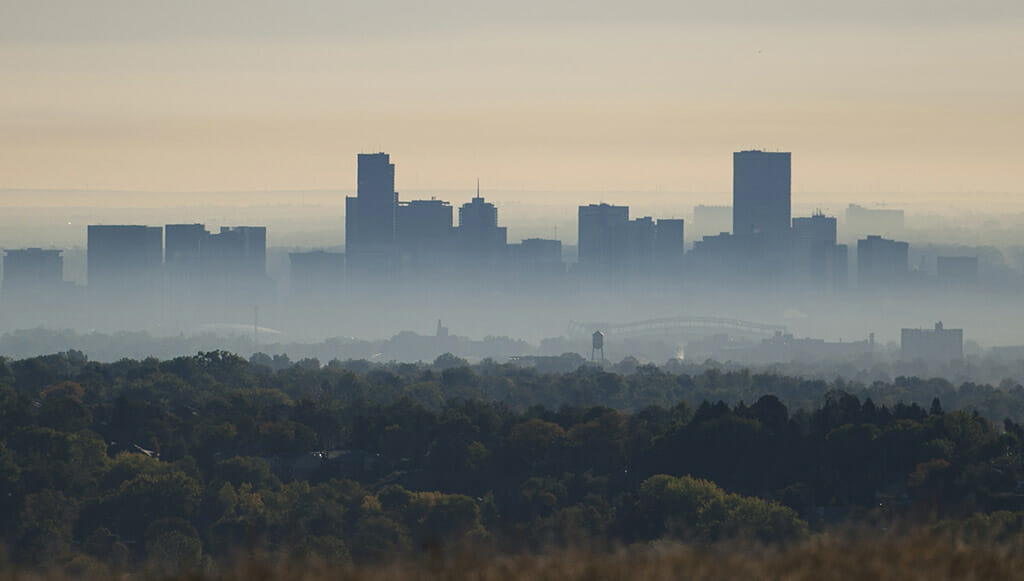Thoughts On How to Clean Up Denver’s Air
I was recently invited by Colorado Governor Jared Polis to participate in a roundtable discussion on how State government can support the Colorado Cleantech industry and help the State improve its air quality. It was a timely discussion given that Denver’s air quality rating was recently downgraded from moderately poor to serious. While many good ideas were bantered about, the conversation eventually turned from what industry can do, to what the state can do to support the needed change.
Two ideas came out of this meeting that I wholeheartedly agree with.

First, the State should continue its focus on electrification of government fleets. Denver has committed to replace eligible fleet passenger vehicles with EVs as they are retired, but the process needs to be accelerated and medium-duty trucks and buses need to be included, as they represent 20% of the smog contribution. Denver has an opportunity to set an example for US cities and businesses. And while 25% of the city’s fleet being electric by 2029 is good, it could be better. If replacing 850 gas or diesel vehicles with electric would remove 11,500 tons of emissions from the air, let’s multiply that effort by accelerating the conversion and including medium duty trucks and buses.
The second, and potentially more impactful action local government can take is to follow the EU’s example and declare Low Emission Zones (LEZ). In a nutshell, a LEZ is a designated region within a heavily trafficked area where a pollution fee is charged to diesel- or gasoline-powered commercial vehicles. This fee incentivizes commercial fleets to use Zero Emission vehicles. By implementing such zones, NO2 levels have been reduced by as much as 32% in some EU cities, noise has been dramatically decreased, and, more importantly, businesses are given a financially quantifiable reason to become more environmentally friendly. LEZ’s can be implemented by City governments quickly, without raising taxes or passing new State or Federal laws. Grass roots efforts by citizens can have a fast impact with City Councils to pass LEZ rules.
Again, these were just two of the options that were discussed in the roundtable, but in my opinion, committing to the electrification of government fleets and declaring low or zero emission zone in major metropolitan areas are the best approach to getting business to see the value in polluting less. And while this particular meeting was directed at the State of Colorado, the ideas are not limited to this State. The fastest and most efficient way to take a bite out of emissions is for ideas like these to be enacted quickly at the State and City levels across the nation.
Back to Blog page